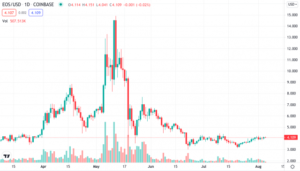The endocannabinoid system (ECS) is a biological mechanism that works to keep almost all vertebrae alive. It regulates everything from death to cancer. Not surprisingly, cannabis‘s role in cancer therapy is multifaceted and irrefutable, despite a still moot status with the FDA. Yet, institutions continue to intently focus on cancer vaccine research with disregard for medical cannabis and endocannabinology — the study of the ECS. Or, has that begun to change?
Cell death and regeneration are required in sequence for true therapy
Cancer vaccine technology and cannabis both rely on either cytotoxicity or immunoregulation to kill cancer. That said, each therapy presents far different challenges and benefits for oncologists — scientists that study cancer.
Vaccine technology is versatile in theory. Whereas, ECS therapies — such as medicinal cannabis – are known for their skillful prowess to help treat cancer. (1) Importantly, cannabis formulations also come with enough flexibility to later promote remission (regeneration of healthy tissue) by virtue of regular maintenance doses. (2)

Picking the right key — Is one option counterintuitive?
The immune response is key in how most treatments affect different types of cancer and tumours (immuno-oncology.)The tricky part, however, is that cancer employs a select few immune cells as personal bodyguards. (3, 4) Because of this, mRNA platforms designed for viral protection might protect and hyper-progress cancer if they signal the wrong immune cells. (5)
mRNA vaccines were on the radar of a few cancer companies a decade before 2020 hit town. They can be designed around a specific antigen – or human gene — but few have passed into stage three clinical trials. Counterintuitively, at least one immune cell that is highly effective at wiping out Covid-19 just so happens to be paired with at least one of four major bodyguards that keep cancer safe. (4, 6, 7)
Holding back these bodyguards opens a window to kill cancer, but this lowers the defences against viruses. Therefore, the immune system must be bolstered or regulated in an intensely tedious sequence to truly promote overall health.

An old way to starve cancer, newly understood
Fortunately for medical cannabis, the endocannabinoid system provides a multifaceted but also balanced attack against cancer. In other words, a complex of systems is harmoniously plucked by the ECS – with the proper chemovar, dose, and routine.
Rather than bother with the tricky immune system directly, we can target a pathway that alters the complete cancer environment (Warburg Effect.) True, cannabis is usually asymmetrical to many mRNA platforms, although there is one formulation in development that shares a pathway with ECS receptors. (8 – 10)
A study on an experimental mRNA vaccine funded by Havard Medical School and the National Institute of Health included, for example, collaborations by researchers from Havard Medical School and the University of Chinese Academy of Sciences. (8) This technology reactivates the tumour-suppressor gene known as PTEN, which communicates with the messenger — PIK3. PTEN genes, which share a role as tumour regulators with the endocannabinoid system, can become mutated and dysfunctional within cancer cells. On the other hand, cannabinoids receptors — CB1 and CB2 — are also major regulators of PIK3, which is critical in the maintenance and treatment of cancer.
Historically, indirect regulation of the immune system with limited complications is an affidavit better made by medicinal cannabis treatments as opposed to conventional mRNA technology and experimentation.
Should we balance or bolster white blood cells?
Conventional and still highly experimental, mRNA technology is known to produce cytotoxic T cells (CD8). These cytotoxic white blood cells attack and kill other cells or viruses. CD8 cells are important for the maintenance of cancer. And this attack is coordinated by a different group of T cells — CD4. A healthy CD4: CD8 T cell ratio produces good homeostasis, the balanced state between cell death and cancer (cellular mutation), but remember that balance is critical. (5, 11, 12)

Unfortunately, T Cells are a double-edged sword. Vaccines against Covid-19, for example, steer the immune system toward more suppressive (regulatory) CD4 cells (FoxP3). (14) These are immune cells that communicate with one of cancer’s bodyguards (PD1), which can help cancer escape the immune system. Therefore, Covid vaccines quite literally oppose the intention of certain cancer treatments.
Surprisingly, tumour and cancer progression are nearly inescapable between certain viruses and the vaccines designed to prevent death from those viruses. Disappointingly, National Institute of Infectious Disease (NIAID) researchers failed to assess if FoxP3 — a cancer progressor — is induced by mRNA Covid vaccines in humans. (15) Recent studies determined that an effective immune response against Sars-Cov2 depends on immune cells at least related to FoxP3 — although research is still limited. (16)
So, we ran these concerns by Immunity Diagnostics, a lab in Vancouver, BC, that conducted an in-population study to assess T cell counts in vaccinated individuals.
Yes, PD-1/PD-L1/L2 interactions play a role in Treg immunosuppression in cancer and likely COVID-19.
Dr. Ismael Samudio – Founder and CEO of Immunity Diagnostics – June 28, 2021
Unfortunately, Immunity Diagnostics did not have the time or budget allocated to sort through different classes of immune cells beyond conventional CD4 and CD8, despite their interest.
Is cancer progression from viral vaccines more than anecdotal?
Health Canada‘s media team assured this author that there have been no (official) signals to suggest progressed cancer due to Covid vaccines in Canada. That said, a Health Canada spokesperson admitted that Covid vaccine science is incomplete.
Regarding your questions about cellular immune responses and oncology and the literature cited, research in this field is growing and evolving.
Anne Génier – Health Canada Media Department
Dr. Bryam Bridle, Associate Professor of Immunology at Guelph University in Ontario, gained a controversial reputation for speaking out against certain technical issues regarding mRNA vaccines for Covid-19 and the antigens they force the body to produce. After a review of Health Canada’s full response, which included information privy to Bridle’s other concerns, the Associate Professor instead focused his attention on the question regarding cancer progression.
Some of my colleagues and I have received reports from several members of the public claiming that [cancer progression] is happening post-vaccination. This is worrisome, especially since this would likely be one of the most under-reported adverse events if it were occurring.
Professor Bridle
Cancer vaccines or the ECS?
On the other side, novel cancer therapies often cause greater susceptibility to viral disease. And, despite efforts by today’s scientists, successful cancer therapy has already been found in cannabis and endocannabinoid health. So, are Havard Medical School researchers close to the right track with a cancer vaccine that indirectly regulates T cells and the overall cancer environment (Warburg Effect)?
In any case, the maintenance of CB1 receptors and the ECS will prove to be a pivotal strategy along anyone’s road to a successful cancer vaccine because the CB1 receptor is always active and working to maintain tumours and cancer.
Separately, endocannabinoid health – promoted by cannabis and diet – was highlighted by Havard Medical School in a news release just one month after their study on PTEN vaccines. So, at least there is hope that medical cannabis and endocannabinology will not be lost to the lure of new-age cancer vaccine platforms.
Let us know in the comments if you or someone you know has battled with cancer and if they found success with cannabis therapy. And check this story out to learn more about the Warburg Effect.
Note from the author — Cancer progression and regulation are far different than cancer formation — a story for another time. DNA has to be altered to produce cancer, typically. So, stay tuned to learn how the endocannabinoid system, a terpene, and a cannabinoid can help regulate DNA as well as PTEN — potential benefits IF polymerase theta is a risk from the currently authorized mRNA vaccines.
Sources
- Jn HiTomko, A. M., Whynot, E. G., Ellis, L. D., & Dupré, D. J. (2020). Anti-Cancer Potential of Cannabinoids, Terpenes, and Flavonoids Present in Cannabis. Cancers, 12(7), 1985.
- Gu, Z., Singh, S., Niyogi, R. G., Lamont, G. J., Wang, H., Lamont, R. J., & Scott, D. A. (2019). Marijuana-Derived Cannabinoids Trigger a CB2/PI3K Axis of Suppression of the Innate Response to Oral Pathogens. Frontiers in immunology, 10, 2288.
- Tseng, D., Volkmer, J. P., Willingham, S. B., Contreras-Trujillo, H., Fathman, J. W., Fernhoff, N. B., Seita, J., Inlay, M. A., Weiskopf, K., Miyanishi, M., & Weissman, I. L. (2013). Anti-CD47 antibody-mediated phagocytosis of cancer by macrophages primes an effective antitumor T-cell response. Proceedings of the National Academy of Sciences of the United States of America, 110(27), 11103–11108.
- Barkal, A. A., Brewer, R. E., Markovic, M., Kowarsky, M., Barkal, S. A., Zaro, B. W., Krishnan, V., Hatakeyama, J., Dorigo, O., Barkal, L. J., & Weissman, I. L. (2019). CD24 signalling through macrophage Siglec-10 is a target for cancer immunotherapy. Nature, 572(7769), 392–396.
- Tay, C., Qian, Y., & Sakaguchi, S. (2020). Hyper-Progressive Disease: The Potential Role and Consequences of T-Regulatory Cells Foiling Anti-PD-1 Cancer Immunotherapy. Cancers, 13(1), 48.
- Evaluation of the Safety of CD24-Exosomes in Patients With COVID-19 Infection. Feb 10, 2021. NCT04747574. Mar 4, 2021. (Sept 22, 2021).
- Kalfaoglu, B., Almeida-Santos, J., Tye, C. A., Satou, Y., & Ono, M. (2020). T-Cell Hyperactivation and Paralysis in Severe COVID-19 Infection Revealed by Single-Cell Analysis. Frontiers in immunology, 11, 589380. https://doi.org/10.3389/fimmu.2020.589380
- Lin, Y. X., Wang, Y., Ding, J., Jiang, A., Wang, J., Yu, M., Blake, S., Liu, S., Bieberich, C. J., Farokhzad, O. C., Mei, L., Wang, H., & Shi, J. (2021). Reactivation of the tumor suppressor PTEN by mRNA nanoparticles enhances antitumor immunity in preclinical models. Science translational medicine, 13(599), eaba9772. https://doi.org/10.1126/scitranslmed.aba9772
- Carracedo, A., Pandolfi, P. The PTEN–PI3K pathway: of feedbacks and cross-talks. Oncogene 27, 5527–5541 (2008). https://doi.org/10.1038/onc.2008.247
- Izzo, A. A., & Deutsch, D. G. (2011). Unique pathway for anandamide synthesis and liver regeneration. Proceedings of the National Academy of Sciences of the United States of America, 108(16), 6339–6340. https://doi.org/10.1073/pnas.1103566108
- **convential mrna platform cd8**
- Hernandez O, Oweity T, Ibrahim S. Is an increase in CD4/CD8 T-cell ratio in lymph node fine needle aspiration helpful for diagnosing Hodgkin lymphoma? A study of 85 lymph node FNAs with increased CD4/CD8 ratio. Cytojournal. 2005 Sep 9;2:14. doi: 10.1186/1742-6413-2-14. PMID: 16153296; PMCID: PMC1242242.
- Lucas C, Vogels CBF, Yildirim I, et al. Impact of Circulating SARS-CoV-2 Variants on MRNA Vaccine-Induced Immunity in Uninfected and Previously Infected Individuals. Infectious Diseases (except HIV/AIDS); 2021.
- Silva-Cayetano, A., Foster, W. S., Innocentin, S., Belij-Rammerstorfer, S., Spencer, A. J., Burton, O. T., Fra-Bidó, S., Le Lee, J., Thakur, N., Conceicao, C., Wright, D., Barrett, J., Evans-Bailey, N., Noble, C., Bailey, D., Liston, A., Gilbert, S. C., Lambe, T., & Linterman, M. A. (2021). A booster dose enhances immunogenicity of the COVID-19 vaccine candidate ChAdOx1 nCoV-19 in aged mice. Med (New York, N.Y.), 2(3), 243–262.e8. https://doi.org/10.1016/j.medj.2020.12.006
- DiPiazza, A. T., Graham, B. S., & Ruckwardt, T. J. (2021). T cell immunity to SARS-CoV-2 following natural infection and vaccination. Biochemical and biophysical research communications, 538, 211–217. https://doi.org/10.1016/j.bbrc.2020.10.060
- "
- &
- 11
- 2019
- 2020
- 2021
- 7
- 9
- active
- aged
- All
- america
- analysis
- around
- aspiration
- blood
- body
- Canada
- Cancer
- cannabis
- Cause
- ceo
- change
- chinese
- clinical trials
- comments
- Communications
- Companies
- continue
- Covid
- COVID-19
- COVID-19 infection
- Development
- DID
- Diet
- Disease
- diseases
- dna
- Effective
- Environment
- events
- fda
- fine
- Flexibility
- Focus
- founder
- full
- funded
- good
- Group
- Growing
- Health
- Highlighted
- How
- HTTPS
- Humans
- Immune system
- Increase
- infection
- Infectious diseases
- information
- institutions
- interest
- issues
- IT
- Key
- LEARN
- Limited
- literature
- major
- Media
- medical
- medicinal
- medicine
- Members
- Messenger
- mice
- Mutation
- National Institute of Health
- New York
- news
- official
- oncology
- opens
- Option
- Other
- patients
- pivotal
- platform
- Platforms
- present
- promote
- protect
- protection
- public
- radar
- Regulation
- Regulators
- regulatory
- Reports
- research
- response
- review
- Risk
- safe
- Safety
- SARS-CoV-2
- Science
- SCIENCES
- scientists
- Share
- Shares
- So
- spokesperson
- Stage
- State
- States
- Status
- stay
- Strategy
- studies
- Study
- success
- successful
- system
- Systems
- Target
- Technical
- Technology
- The United States of America
- therapy
- time
- track
- treat
- treatment
- United
- United States
- UNITED STATES OF AMERICA
- university
- us
- Vaccine
- vaccines
- virus
- viruses
- W
- Wikipedia
- within
- words
- works
- X







